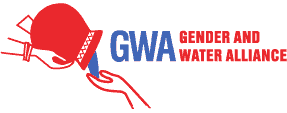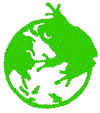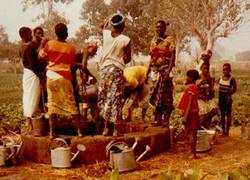Menu

Water Links
General Information About Drinking Water
A page of links from the website of Elizabeth Royte's book Bottlemania: How Water Went on Sale and Why We Bought It.
Maude Barlow: "The World Has Divided into Rich and Poor as at No Time in History" Interview on Democracy Now! July 2010
Women and Water
An introduction to the international water problem:
1.4 billion people have no access to safe drinking water and 2.4 billion are without access to adequate sanitation services. The consequences are devastating: 30,000 persons are dying every day from diseases caused by absence of safe drinking water and lack of sanitation...
It has been predicted that by the year 2032, 60% of the world population will live in regions characterized by water scarcity.
There will be proliferation and hardening of water conflicts within and across countries. Water is now being increasingly referred to as the 'blue gold' in analogy with crude oil that is termed as 'black gold' therefore people are more and more convinced that the 21st century will be the century of 'water wars'...
(from brochure: "People's March For Water", People's World Water Forum)
Declaration of the Peoples World Water Movement:
New Delhi, India, 14 January 2004
"We stand in clear opposition to the oligarchy of the World Water Council and commit to democratic control; peoples based control of the world's water resources. We commit to working on the ground with women and men in communities, recognizing the special impacts of the world's water crisis on women..."
Read full declaration
Sources of information

The Gender and Water Alliance is a network of 133 organisations and individuals from around the world with an independent steering committee. It is an Associated Programme of the Global Water Partnership (GWP) funded by the governments of the Netherlands and United Kingdom. Beacuse of the pooled experience and skills contained in this network, the GWA offers a mix of information and knowledge sharing activities such as electronic conferencing, a web site, advocacy leaflets and video, annual reports, capacity building and pilot programmes.
The Blue Planet Project is an international effort begun by The Council of Canadians to protect the world’s fresh water from the growing threats of trade and privatization.
Blue Gold: The Battle Against Corporate Theft of the World’s Water By Maude Barlow and Tony Clarke
RiverNet " the server for living rivers"
International Rivers Network
Clean Water Action
is a national citizens' organization working for clean, safe and affordable water, prevention of health-threatening pollution, creation of environmentally-safe jobs and businesses, and empowerment of people to make democracy work.
Regional USA water groups
Sweetwater Alliance: Michigan's citizens take action to protect their water.
Hudson River Sloop Clearwater: Clearwater conducts environmental education, advocacy programs and celebrations to protect the Hudson River, its tributaries and related bodies of water. ...
On water privatization
Promoting Privatization February 3, 2003 — The explosive growth of three private water utility companies in the last 10 years raises fears that mankind may be losing control of its most vital resource to a handful of monopolistic corporations. In Europe and North America, analysts predict that within the next 15 years these companies will control 65 percent to 75 percent of what are now public waterworks. The companies have worked closely with the World Bank and other international financial institutions to gain a foothold on every continent. They aggressively lobby for legislation and trade laws to force cities to privatize their water and set the agenda for debate on solutions to the world's increasing water scarcity. The companies argue they are more efficient and cheaper than public utilities. Critics say they are predatory capitalists that ultimately plan to control the world's water resources and drive up prices even as the gap between rich and poor widens. The fear is that accountability will vanish, and the world will lose control of its source of life. Read report
What has been the role of the World Bank?
WASHINGTON, February 3, 2003 — Despite World Bank contentions that it does not force privatization on the poor, research by ICIJ and the bank itself showed that privatization is playing an ever-increasing role in bank lending policies. Printer-Friendly VersionPrinter-Friendly Version Email This PageEmail This Page Send Us Your CommentsSend Us Your Comments Using data available from the World Bank Web site, ICIJ analyzed 276 loans labeled "water supply" awarded by the bank between 1990 and November 2002. In about one third of the projects, the World Bank required the country to privatize its water operations in some form before it received funds.
Read report


